
- Home
- Pakistan
- UNESCO, partners lead efforts to develop Pakistan’s first National Media Literacy Policy
UNESCO, Partners Lead Efforts To Develop Pakistan’s First National Media Literacy Policy
Sumaira FH Published May 14, 2025 | 11:56 PM

In a major step toward strengthening digital citizenship and informed democratic participation, UNESCO, in collaboration with the Pakistan Institute for Parliamentary Services (PIPS), Media Foundation 360, and the University of the Punjab, convened a high-level policy session to advance Pakistan’s first-ever National Media and Information Literacy (MIL) Strategy
ISLAMABAD, (UrduPoint / Pakistan Point News - 14th May, 2025) In a major step toward strengthening digital citizenship and informed democratic participation, UNESCO, in collaboration with the Pakistan Institute for Parliamentary Services (PIPS), Media Foundation 360, and the University of the Punjab, convened a high-level policy session to advance Pakistan’s first-ever National Media and Information Literacy (MIL) Strategy.
The technical session, titled “Shaping National Policy: Enhancing Policymakers' Understanding of Media and Information Literacy Challenges,” brought together key stakeholders including parliamentarians, media professionals, and members of the National Assembly Standing Committee on Information and Broadcasting.
Opening the session, PIPS Executive Director Asim Khan Goraya underscored the need for informed policymaking in the digital age. Mr. Antony Kar Hung Tam, Officer-in-Charge at UNESCO Pakistan, highlighted the growing importance of media literacy as a tool to strengthen democracy, promote ethical digital behavior, and counter misinformation.
“In today’s fast-changing information landscape, Media and Information Literacy is not optional—it is essential,” said Tam.
“When people are empowered to evaluate information critically and engage ethically, they help build more transparent and inclusive societies.
”
The event featured a panel discussion on expanding MIL beyond educational institutions, with contributions from National Assembly Member Syeda Shehla Raza and other key policymakers. Panelists emphasized the need for public awareness, institutional support, and youth-focused initiatives to foster digital resilience.
Professor Dr. Savera Mujib Shami, Chairperson of the Department of Digital Media at the University of the Punjab, presented key elements of the draft National MIL Strategy. The strategy aims to integrate media literacy into Pakistan’s education, media, and governance systems, with a strong focus on youth engagement, gender inclusion, and ethical online participation.
The session concluded with interactive policy drafting exercises, where participants contributed ideas for practical MIL initiatives and implementation frameworks.
This initiative marks a critical milestone in Pakistan’s efforts to promote responsible media use and aligns with the country’s Digital Pakistan vision and UNESCO’s global commitment to building informed and inclusive knowledge societies.
Recent Stories
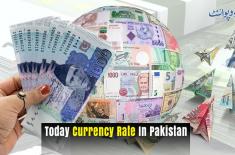
Currency Rate In Pakistan - Dollar, Euro, Pound, Riyal Rates On 15 May 2025

Today Gold Rate in Pakistan 15 May 2025
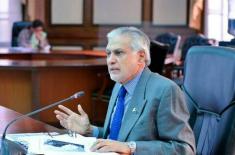
ECNEC approves 9 development projects worth Rs355.73 bn in key sectors

Talks with India tied to Kashmir, Terrorism, and Water: Rana Tanveer
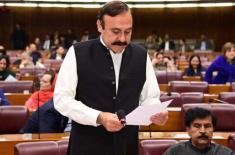
Nation united against any aggression: Tariq Fazal
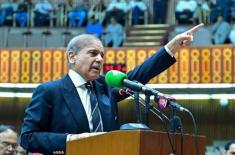
PM Shehbaz, UN chief 'exchange views' on phone about next steps to build-on May ..
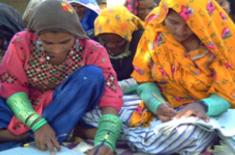
UNESCO, partners lead efforts to develop Pakistan’s first National Media Liter ..

RMU observes “Youm-e-Tashakur”

Implementation of women quota in sectors to boost their participation: Governor

SU's Pakistan Study Centre pays tribute to PAF’s success against Indian aggres ..
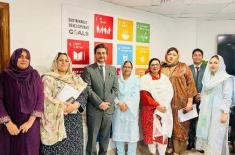
Parliamentary Caucus on Child Rights (PCCR) meeting held
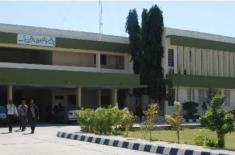
VC FUUAST participates Kazan forum on Educating Future Academic Leaders
More Stories From Pakistan
-
AJK govt allocates Rs. 1 bln relief fund for AJK victims of Indian aggression: Minister
1 minute ago -
Rally organized to express solidarity with armed forces
1 minute ago -
No peace, development possible without durable, honourable, just solution to Kashmir dispute: G A Gu ..
51 minutes ago -
FIA orders crackdown on human trafficking
11 hours ago -
CM Bugti pays rich tribute to Pakistani forces for breaking enemy’s arrogance
11 hours ago -
Senator Rubina Khalid condemns Quetta Blast, calls for immediate action against perpetrators
11 hours ago
-
Pakistani, Kashmiri diaspora celebrates befitting response to India’s aggression
11 hours ago -
Asif urges Indian leadership to work for regional peace, avoid conflicts
11 hours ago -

ECNEC approves 9 development projects worth Rs355.73 bn in key sectors
11 hours ago -

Talks with India tied to Kashmir, Terrorism, and Water: Rana Tanveer
11 hours ago -

Nation united against any aggression: Tariq Fazal
11 hours ago -

UNESCO, partners lead efforts to develop Pakistan’s first National Media Literacy Policy
11 hours ago



